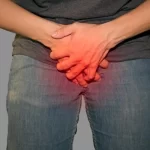Stakeholders in Garissa have raised concern over the low uptake of the Human Papilloma Virus (HPV) in Garissa County.
Almost all women are at risk of cervical cancer, because the human papillomavirus which causes cervical cancer, is very common.
In 2020 over 5,000 cases were reported with 3,000 deaths. The numbers keep in on increasing.
It is for this reason that in 2021, the government launched the HPV vaccine which is offered countrywide at Public, Private, faith-based and NGO health facilities to girls between 10 to 14 years.
However the uptake of the vaccine in the household in Garissa County has remained low.
Interviews with several stakeholders pointed to a grim picture as far as the vaccine uptake is concerned.
Several factors have been attributed to this among them parental fears about the safety of the vaccine, personal, cultural, and religious reasons, and parental misinformation and disinformation.
Mrs Nurta Mohamed, Garissa County non-communicable disease coordinator disclosed that from January to May this year, only 124 have been vaccinated for the first dose with only 132 going for the second dose.
She said that even though there has been continuous mobilization and sensitization including through the FM radio stations, there has been little improvement in disclosing that the few who have taken the vaccine are non-locals.
“As I am talking to you the number of girls who have taken the vaccine are not locals but Kenyans from other parts of the country. So I still feel there is a gap and we need to do so many advocacies and sensitization through our religious and community leaders,our partners and all the gatekeepers to spearhead this process so that HPV vaccine intake can be improved,” she said.
In 2012, the catholic church raised alarm over the vaccine which they said was not only safe but had issues related to infertility.
Nurta says the negative narrative from the priests has contributed to locals failing to accept and take their young girls for vaccination.
‘You could hear people come up with allegations like saying this injection would prevent their young girls from getting children. That it would lead to infertility,”. she said.
Sheikh Omar Abdisitar a member of the Council of Imams and Preachers of Kenya [CIPK]-Garissa chapter blamed the low uptake on a lack of awareness about the vaccine.
He said there was a need to carry out an adequate sensitization campaign noting that the role should not only be left to the government and the Ministry of Health.
“We all have a role to play in not only creating awareness but changing the negative perception about the vaccine as well. Religious leaders, The local administration, the media, and opinion leaders,” he said.
Noor Abdullahi a resident of Garissa faulted the government and the ministry of health for not carrying out enough sensitization campaigns for people to understand the importance of taking their daughters for the vaccine, this he noted has led to the resistance currently being experienced.
“I blame the Ministry of health for the low uptake of HPV vaccine in Garissa and this region at large. Surely how do you just wake one day and tell us to take our daughters for the vaccine without conducting enough sanitization through local barazas and FM stations to demystify the many myths and misconceptions that we had been told about the vaccine,” he said.
Brenda Ndeta a resident of Garissa who works as a Community Health Volunteer [CHV] at the Police line dispensary said that the uptake has been very low since the vaccine was introduced 3 years ago disclosing that majority of those who have taken their daughters were from other parts of the country.
“We were like mobilizers to try and pass the message and vaccine parents to take their children to health facilities to be vaccinated unfortunately the response has remained negative largely because of the negative message that had been passed out there,” she said.
Brenda who at the time decided to lead by example by taking her then 11-year-old daughter to get the jab.
Ubah Abdullahi, Bula Mzuri senior Assistant Chief regretted the myths peddled about the vaccine saying that despite their efforts to sensitize the locals not much has changed.
“Our community listens to local FM stations a lot.That is where the whole problem started. parents were told of how the vaccine will render their daughters infertile, since then it has been difficult to correct that misinformation,” she said.
Winne Muga another resident of Garissa urged the Somali community to embrace the vaccine noting that it will go a long way in protecting the girls against cervical cancer as they grow up.





